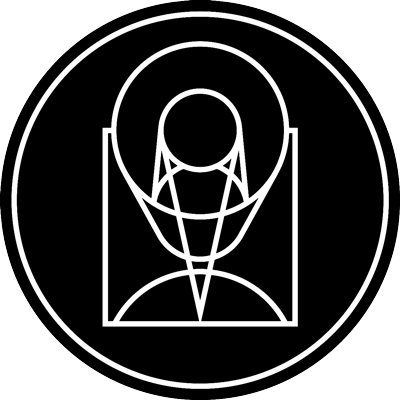The 'Serpent' Star-Forming Cloud Spawns Stars

spitzer_sig14-011 May 28th, 2014
Credit: NASA/JPL-Caltech/2MASS
Within the swaddling dust of the Serpens Cloud Core, astronomers are studying one of the youngest collections of stars ever seen in our galaxy. This infrared image combines data from NASAs Spitzer Space Telescope with shorter-wavelength observations from the Two Micron All Sky Survey (2MASS), letting us peer into the clouds of dust wrapped around this stellar nursery.
At a distance of around 750 light-years, these young stars reside within the confines of the constellation Serpens, or the Serpent. This collection contains stars of only relatively low to moderate mass, lacking any of the massive and incredibly bright stars found in larger star-forming regions like the Orion nebula. Our sun is a star of moderate mass. Whether it formed in a low-mass stellar region like Serpens, or a high-mass stellar region like Orion, is an ongoing mystery.
The stellar hatchlings in the Serpens Cloud Core represent the very youngest stages of stellar development. They appear as red, orange and yellow points clustered near the center of the image. Other red features include jets of material ejected from these young stars. Some mature stars that are not in the nebula appear yellowish due to dust obscuring our view at shorter, bluer wavelengths.
This region also includes a population of prenatal stars that are so deeply enshrouded in their dusty cocoons to be completely hidden in this view. They only become detectable at much longer wavelengths of light.
The inner Serpens Cloud Core is remarkably detailed in this image, as it was assembled from 82 separate snapshots totaling a whopping 16.2 hours of Spitzer observing time. Serpens is one of several star-forming regions targeted by the Young Stellar Object Variability (YSOVAR) project, which conducted repeated observations in each area to look for changes in brightness in the baby stars. Such fluctuations can provide valuable clues to how stars gobble up gas and dust as they grow and mature.
Spitzer observations at wavelengths of 3.5 and 4.6 microns are shown in green and red, respectively. 2MASS data at 1.3 microns is displayed as blue. These observations date from Spitzers warm mission phase, following the depletion of its liquid coolant in 2009.
The 2MASS mission was a joint effort between the California Institute of Technology, Pasadena, Calif., the University of Massachusetts and NASA's Jet Propulsion Laboratory, Pasadena, Calif.
Provider: Spitzer Space Telescope
Image Source: http://www.spitzer.caltech.edu/images/5847-sig14-011-The-Serpent-Star-Forming-Cloud-Spawns-Stars
Curator: Spitzer Space Telescope, Pasadena, CA, USA
Image Use Policy: http://www.spitzer.caltech.edu/info/18-Image-Use-Policy

- ID
- sig14-011
- Subject Category
- B.4.2.3 B.4.1.2 B.3.1.1
- Subject Name
- Serpens Cloud
- Credits
- NASA/JPL-Caltech/2MASS
- Release Date
- 2014-05-28
- Lightyears
- 750
- Redshift
- 750
- Reference Url
- http://www.spitzer.caltech.edu/images/5847-sig14-011-The-Serpent-Star-Forming-Cloud-Spawns-Stars
- Type
- Observation
- Image Quality
- Good
- Distance Notes
- Facility
- 2MASS, Spitzer, Spitzer
- Instrument
- -, IRAC, IRAC
- Color Assignment
- Blue, Green, Red
- Band
- Infrared, Infrared, Infrared
- Bandpass
- Near-IR, Near-IR, Near-IR
- Central Wavelength
- 1300, 3600, 4500
- Start Time
- Integration Time
- Dataset ID
- Notes
- Coordinate Frame
- ICRS
- Equinox
- Reference Value
- 277.4891560, 1.2338129
- Reference Dimension
- 2251.0, 1476.0
- Reference Pixel
- 1126.5, 739.0
- Scale
- -0.000169359, 0.0001693592
- Rotation
- -87.07
- Coordinate System Projection:
- TAN
- Quality
- Full
- FITS Header
- Notes
- Creator (Curator)
- Spitzer Space Telescope
- URL
- http://www.spitzer.caltech.edu
- Name
- Telephone
- Address
- 1200 E. California Blvd.
- City
- Pasadena
- State/Province
- CA
- Postal Code
- 91125
- Country
- USA
- Rights
- http://www.spitzer.caltech.edu/info/18-Image-Use-Policy
- Publisher
- Spitzer Science Center
- Publisher ID
- spitzer
- Resource ID
- sig14-011.tif
- Resource URL
- http://www.spitzer.caltech.edu/uploaded_files/images/0010/0135/sig14-011.tif
- Related Resources
- Metadata Date
- 2014-05-28
- Metadata Version
- 1.2
Detailed color mapping information coming soon...















